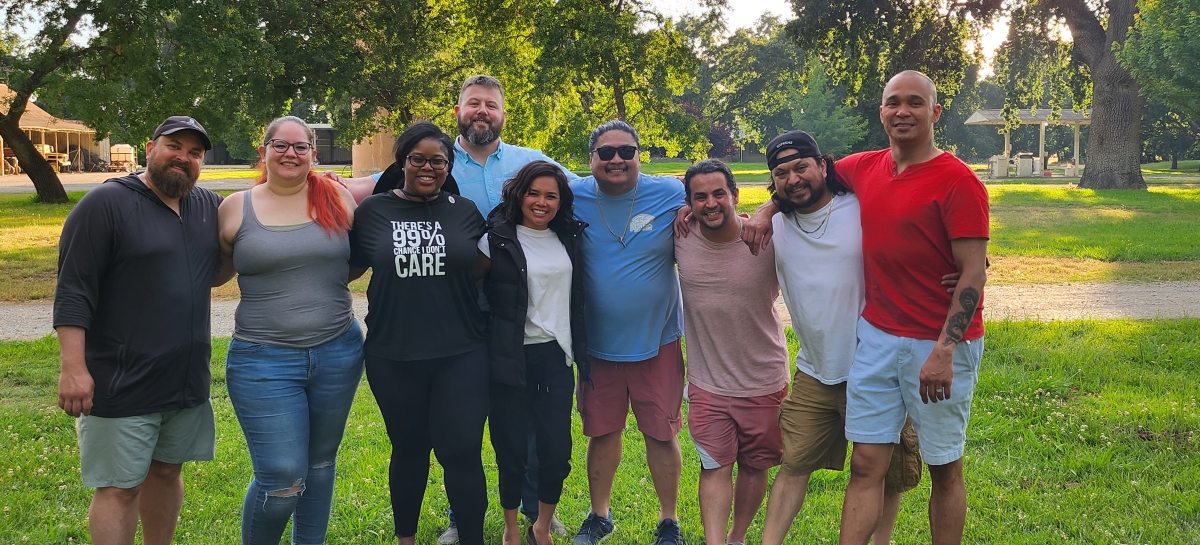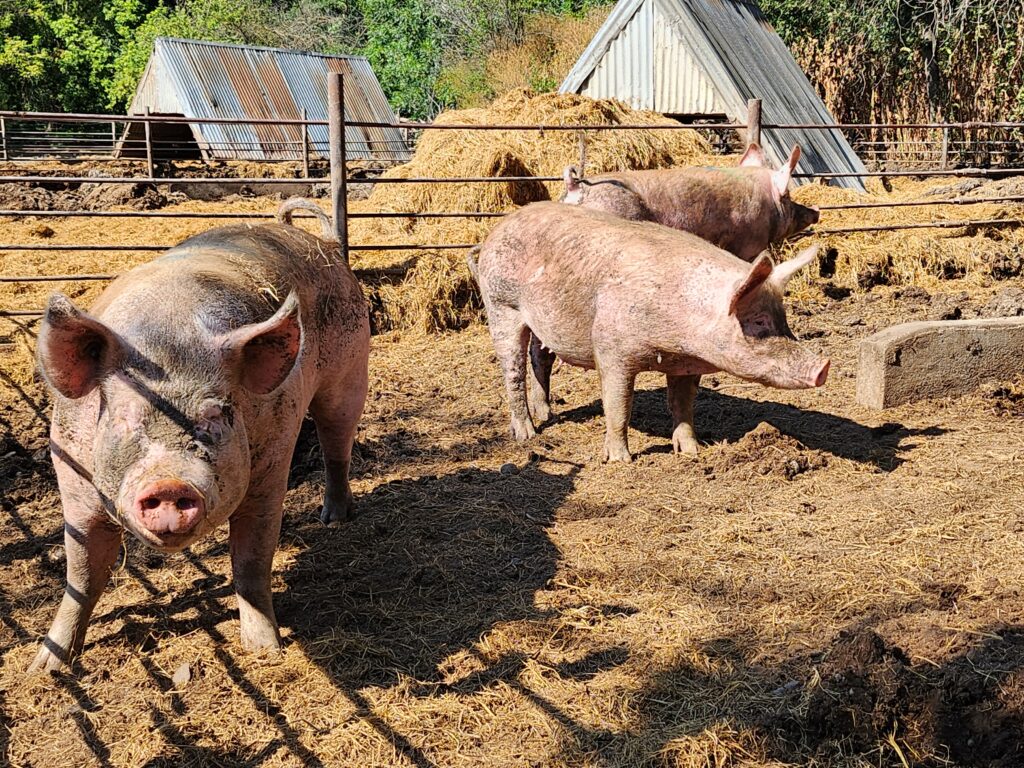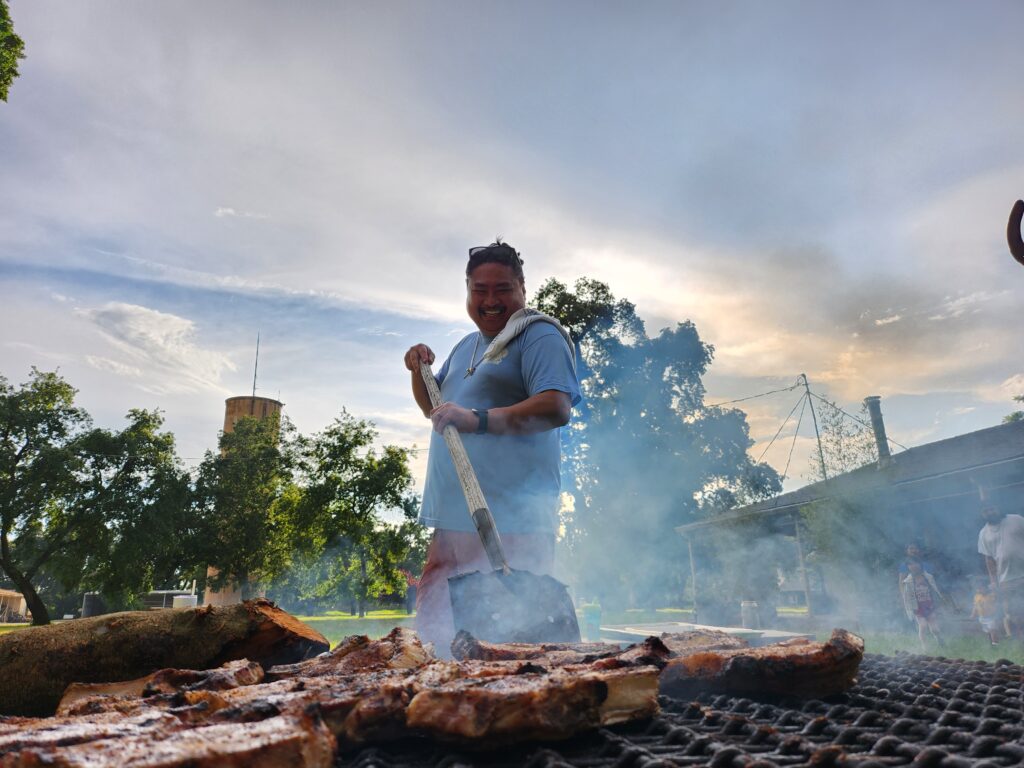Buying with Purpose: Local Sourcing at Scale with Rancho Llano Seco
- by Peter Todaro

Members of the Bon Appétit at Chase Center team at Rancho Llano Seco. From left to right: Premium Executive Chef Ramon Correa Sierra, Pastry Chef Stephanie Alameda, Clubs Sous Chef Davita Burnett, Eateries Executive Chef Chris Cook, Culinary Director Kristela Nazario-Mendoza, Culinary Supervisor Cyrus Irudistan, Catering Executive Chef Tariq Hadine, Premium Sous Chef Jaime Amaya, and Eateries Sous Chef Juan Miquel Gutierrez
Under the leadership of Culinary Director Kristela Nazario-Mendoza, the Bon Appétit Management Company at Chase Center team is putting Bon Appétit’s Farm to Fork program into action at one of the world’s premier sporting arenas.
At Chase Center, the home of the Golden State Warriors, Bon Appétit serves 18,000 fans on an average night. With 44 distinctive eateries, 76 suites and courtside lounges, and eight premium club spaces, the team sources, prepares, and serves a massive quantity of food each week. And while it would be easy to procure all of their ingredients from big food distributors, Kristela and her team are taking a different approach.
The team sources a wide variety of ingredients from farmers and artisans within 150 miles of the arena and recently launched a partnership with Rancho Llano Seco, a regenerative farm in Chico, CA that prioritizes the well-being of their animals and the biological diversity of the native grasslands, wetlands, oak savannas, and riparian forests that stretch across their land. They raise beef cattle and heirloom pigs and grow heirloom beans and ancient grains, which are both used as livestock feed and sold to the public.

Just a few of Rancho Llano Seco’s happy, heritage pigs
In 2023, Kristela and the Chase Center team established a relationship with the ranch and began purchasing their heritage Duroc, Yorkshire, and landrace breeds of pork. “When I first began adding the heritage breed of the pork to the dishes on our menus, it created a lot of conversations in the kitchen,” Kristela laughs. “Some of our chefs wondered, why do we need to get pork from this particular place?”
From these initial educational conversations, a new model of sourcing pork at Chase Center began to unfold.
Kristela worked with Rancho Llano Seco CEO Charles Thieriot to schedule a visit to the ranch, bringing Chase Center chefs – and their families – to tour the farm and camp out overnight. The team learned about how Ranch Llano Seco’s hogs are fed ranch-grown grains and legumes, raised in deep-bedded hoop barns with continual access to large open-air paddocks, and how their bedding is composted to be applied to the ranch’s pastures. “It was so impactful for the chefs to experience the farm with their families and truly understand the impact of our food sourcing choices as it relates to their own children and future generations,” says Kristela. “There was no amount of talking to them about the farm that could do what our visit accomplished.”

Culinary Supervisor Cyrus Irudistan grills pork chops during the team’s visit to Rancho Llano Seco
Equipped with the inspiration and knowledge that emerged from their visit to the ranch, the Chase Center team thinks intentionally about how they can incorporate every part of the pig they receive from Rancho Llano Seco into their dishes. “It’s all about planning for us and as a result we don’t waste a bone,” says Kristela. “The bones find their way into our stocks for soup. It’s truly snout to tail cooking.”
High-quality, pasture-raised heritage pork now regularly appears on Chase’s menus during home games. The team is also working with Rancho Llano Seco to develop a custom-made Chase Center sausage with ranch-grown barley and fennel. “What other arena does that?” Kristela exclaims. “We’re proud to have an impact and move the needle financially for small farms like Rancho Llano Seco.”
By following a philosophy of “buying with purpose,” Kristela and the team are proving that intentional local sourcing can be a success, at scale.